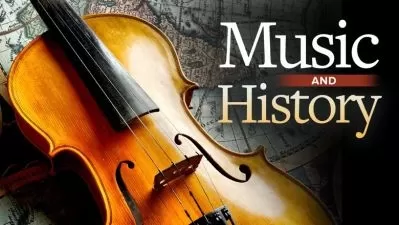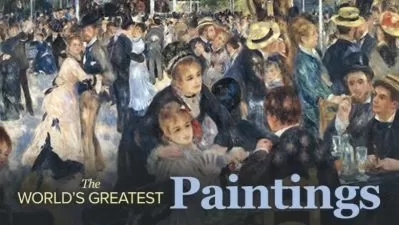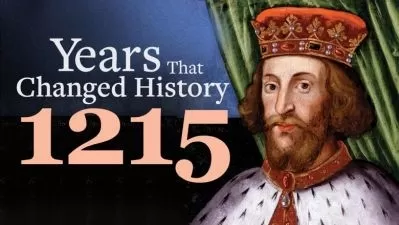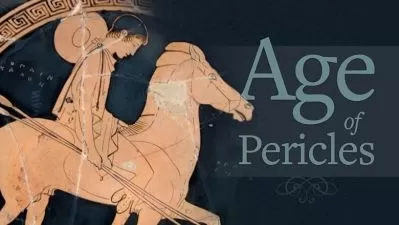History's Great Military Blunders and the Lessons They Teach
Gregory S. Aldrete
12:14:52
Description
“All battles are in some degree…disasters.” These words by military historian John Keegan are true in that military conflicts inevitably involve death and destruction. Yet despite their tragic cost, many battles are regarded as great triumphs, while others are nearly universally declared blunders. What qualifies such battles for special condemnation—or inquiry, for that matter? Why focus on failure at all?
Perhaps above all else, it is the element of avoidability that makes these catastrophes so worthy of exploration. Military history often highlights success and suggests a sense of inevitability about victory, but there is so much that can be learned from studying failure, particularly when it’s unexpected. From how the arc of history was altered by the outcome of these battles to how such mistakes could have been avoided to how they might be circumvented in the future, there are numerous important lessons to be gleaned. You even consider how the world might be different if these egregious errors had not occurred.
Losing a battle due to being outnumbered, outmatched, or suffering a random misfortune is not enough to be deemed a blunder. For a military defeat to qualify as a true blunder, it must:
- be avoidable;
- involve a decision or action that common sense, training, or circumstance suggested was unwise, which dramatically altered the outcome for the worse;
- involve someone who failed to take an obvious action; and/or
- include an element of identifiable blame for the critical mistake.
In History’s Great Military Blunders and the Lessons They Teach, you’ll study these crucibles of history to gain a better understanding of why a civilization took—or didn’t take—a particular path. Full of dramatic reversals of fortune, colorful characters, and unlikely triumphs, this course examines some of the world’s most notable examples of military misfortune, from the humiliating destruction of a Roman army at the Battle of Carrhae in 53 B.C. to the tragic landings at Gallipoli in World War I. Presented in a narrative yet thoroughly informative fashion by Gregory S. Aldrete, Frankenthal Professor of History and Humanistic Studies at the University of Wisconsin–Green Bay, these 24 lectures reveal how the trajectory of history hangs in the balance of individual battles. Success and failure, as you’ll learn, are two sides of the same coin.
With a scope that spans the globe, from ancient Greece through the Crusades through global conflicts during first half of the 20th century, this course features infamous conflicts such as the Charge of the Light Brigade and the Battle of Little Bighorn, as well as lesser-known battles you may find surprising.
Compelling Stories and Fascinating Figures
How could an army equipped with cannon and rocket artillery be wiped out by Zulu warriors wielding spears, clubs, and outdated firearms? How could heavily armored French knights be vulnerable to the crude weapons of a band of Flemish shopkeepers? Why would a savvy Chinese general fall victim to a tactic he had previously employed himself?
Unpredictable twists of fate abound in this course, demonstrating that when it comes to war, there are no givens. Sheer numbers, superior weaponry, and skilled leadership are never a guarantee of success.
History’s Great Military Blunders also features remarkable personalities, such as:
- the conniving and self-indulgent Alcibiades, whose fatal flaws brought his country to utter ruin;
- the ambitious and egotistical Napoleon, who tarnished his legacy by appointing his inept brother to an important role in Russia, among other mistakes;
- the flamboyant General George Custer, who was done in by his belief that he could defeat any number of Native Americans; and
- Genghis Khan’s trusted military strategist Subotai, who cleverly maneuvered opponents onto ground of his own choosing.
On more than one occasion, you’ll see how an inflated sense of a general’s own abilities can spell doom for his troops, particularly when combined with a lack of respect for the opponent.
What becomes clear, as you trace the history of military mistakes across time and around the world, is a disturbing underlying theme that runs through almost all of these examples and categories of blunders: a fundamental failure to learn from the past that continues into the modern day.
Investigate Military Blunders from Root Causes to Ramifications
Whether you’re a student of military history or are simply intrigued by the notion of a blunder altering the course of the world, you’ll appreciate Professor Aldrete’s fresh perspective and engaging storytelling. In every lecture, he lays out a conflict’s historical context and key players before presenting a riveting blow-by-blow account of the battle. He concludes by analyzing the ramifications of the outcome, and considers how these fatal errors might have been avoided.
While the factors leading to the failures you’ll encounter are complex, there are four basic categories of blunders that recur throughout these lectures, regardless of setting, be it the United States, France, Ethiopia, or Afghanistan:
- Failures of planning, which encompass decisions or omissions that doom one side even before battle begins, such as poor intelligence gathering, unclear objectives, or failure to take terrain into account.
- Failures of leadership, which are often the result of overconfidence, indecisiveness, a general being charged with a task for which he is unfit, and internal conflicts.
- Failures of execution, which include dividing control among multiple generals, breakdowns of communication, and refusing to call off an unsuccessful mission or sending additional forces into an operation that had already gone irretrievably wrong.
- Failures of adaptation, in which leadership clings to tactics that have become outmoded, often because of advances in technology.
Evolving technology factors heavily in many of the battles discussed, such as at Culloden, where the Highlanders’ charge against British cannons and muskets proved brave but fruitless; and in the sinking of the battleship Prince of Wales, during which naval commanders failed to recognize the threat that aircraft posed to once-dominant armored warships.
Gripping Tales Told by a Master Historian
Professor Aldrete is a dynamic lecturer and masterful storyteller. His extensive background as an award-winning teacher, writer, and researcher elevates every lecture. A trove of custom visual content help these lectures come alive for those who experience it via a visual format, from battle plans to animations to historically accurate maps that highlight the geopolitical context of the time. These illuminating illustrations provide an immersive experience and facilitate deeper understanding of exactly how these blunders occurred and what could have been done differently. History’s Great Military Blunders and the Lessons They Teach is a fascinating journey through some of the most gloriously inglorious wartime encounters, and along the way you’ll get to know some of the most legendary characters in world history, brilliant yet tragically flawed. By reversing the lens on history and confronting some of the most costly wartime mistakes, we can see the past from a new angle—and perhaps avoid making the same errors in the future.
More details
User Reviews
Rating
Gregory S. Aldrete
Instructor's CoursesDr. Gregory S. Aldrete is Professor of Humanistic Studies and History at the University of Wisconsin, Green Bay, where he has taught since 1995. He earned his B.A. from Princeton University and his master's degree and Ph.D. in Ancient History from the University of Michigan. Honored many times over for his research and his teaching, Professor Aldrete was named by his university as the winner of its highest awards in each category, receiving both its Founders Association Award for Excellence in Scholarship and its Founders Association Award for Excellence in Teaching. That recognition of his teaching skills was echoed on a national level in 2009, when he received the American Philological Association Award for Excellence in the Teaching of Classics at the College Level-the national teaching award given annually by the professional association of classics professors. The recipient of many prestigious research fellowships including five from the National Endowment for the Humanities, Professor Aldrete has published several important books in his field, including Gestures and Acclamations in Ancient Rome; Floods of the Tiber in Ancient Rome; Daily Life in the Roman City: Rome, Pompeii, and Ostia; The Greenwood Encyclopedia of Daily Life I: The Ancient World (as editor); Unraveling the Linothorax Mystery: Reconstructing and Testing Ancient Linen Body Armor (with S. Bartell and A. Aldrete) and The Long Shadow of Antiquity: What Have the Greeks and Romans Done for Us (with A. Aldrete).

The Great Courses
View courses The Great Courses- language english
- Training sessions 24
- duration 12:14:52
- English subtitles has
- Release Date 2023/04/27























